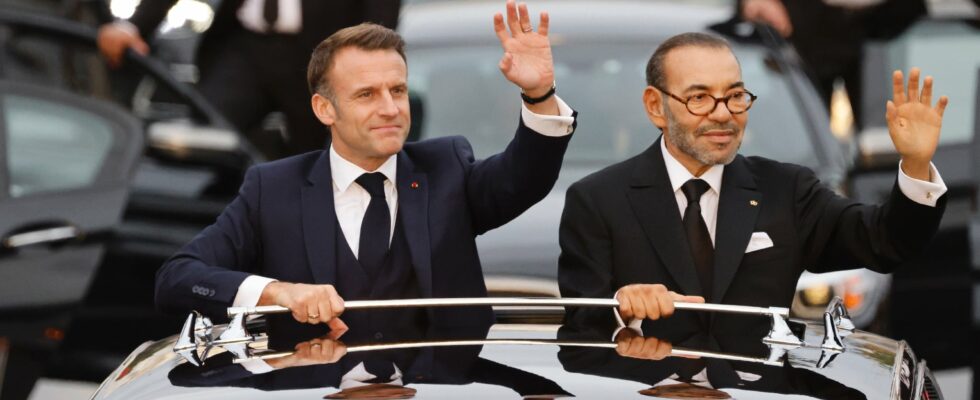Emmanuel Macron solemnly reaffirmed this Tuesday, October 29, before the Parliament of Morocco in Rabat, that “the present and the future” of Western Sahara “are part of the framework of Moroccan sovereignty”, eliciting loud applause from elected officials. “This position is not hostile to anyone,” assured the French president in a response to criticism from Algeria, which supports the Sahrawi separatists of the Polisario Front in this disputed territory. “And I also say it here with great force, our operators and our companies will support the development of these territories through investments, sustainable and solidarity initiatives for the benefit of local populations,” he added.
This former Spanish colony, considered a “non-autonomous territory” by the UN, has pitted Morocco against the Polisario Front for half a century. After the United States recognized Morocco’s sovereignty over this territory, Rabat increased pressure on France to do the same. On July 30, Emmanuel Macron ended up considering in a letter addressed to King Mohammed VI that the future of Western Sahara fell “within the framework of Moroccan sovereignty”, opening the way to warming with Rabat and by extension to a new crisis with Algiers. This realignment of the French position had opened the way for this state visit, which had been postponed many times until then.
“New page”
“Autonomy under Moroccan sovereignty is the framework within which this issue must be resolved and the 2007 autonomy plan” proposed by Morocco “constitutes the only basis for achieving a just, lasting and negotiated political solution, in accordance with the resolutions of the United Nations Security Council”, the French president insisted on Tuesday.
“Anchored in history, respectful of realities and promising for the future, this position is the one that France will implement to support Morocco in international bodies,” he pledged. According to him, “it allows us to open a new page”, including “with all those who want to act within a framework of regional cooperation in the Mediterranean with Morocco’s neighboring countries and with the European Union”.
Beyond the disputed territory, Emmanuel Macron spoke of the need to achieve “stability that respects the people” in the Sahel region. He pleaded for “development projects for youth” which “will not only allow stability, but also put an end to the routes of trafficking and misery which, from the Gulf of Guinea to Libya, are those which make the population suffer. African continent and the European continent.
Three Sahel countries, Niger, Mali and Burkina Faso, led by juntas, have broken with France, the former colonial power. France “has been accused by some of all evils, quite unfairly, because for a decade, it avoided the collapse of several states in the face of terrorism and territorial caliphates”, lamented the French president. He assured that he wanted, “with humility”, to “build a new partnership strategy” in the region.
